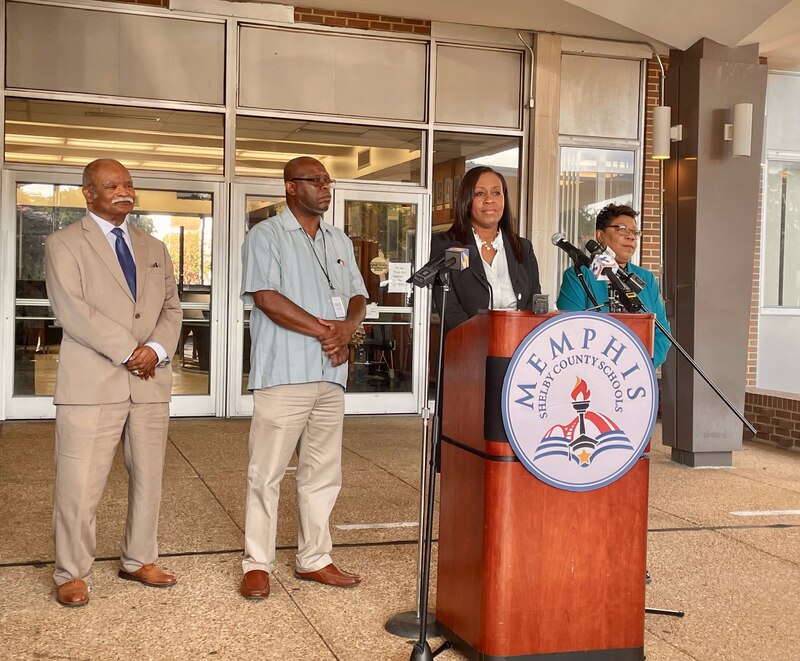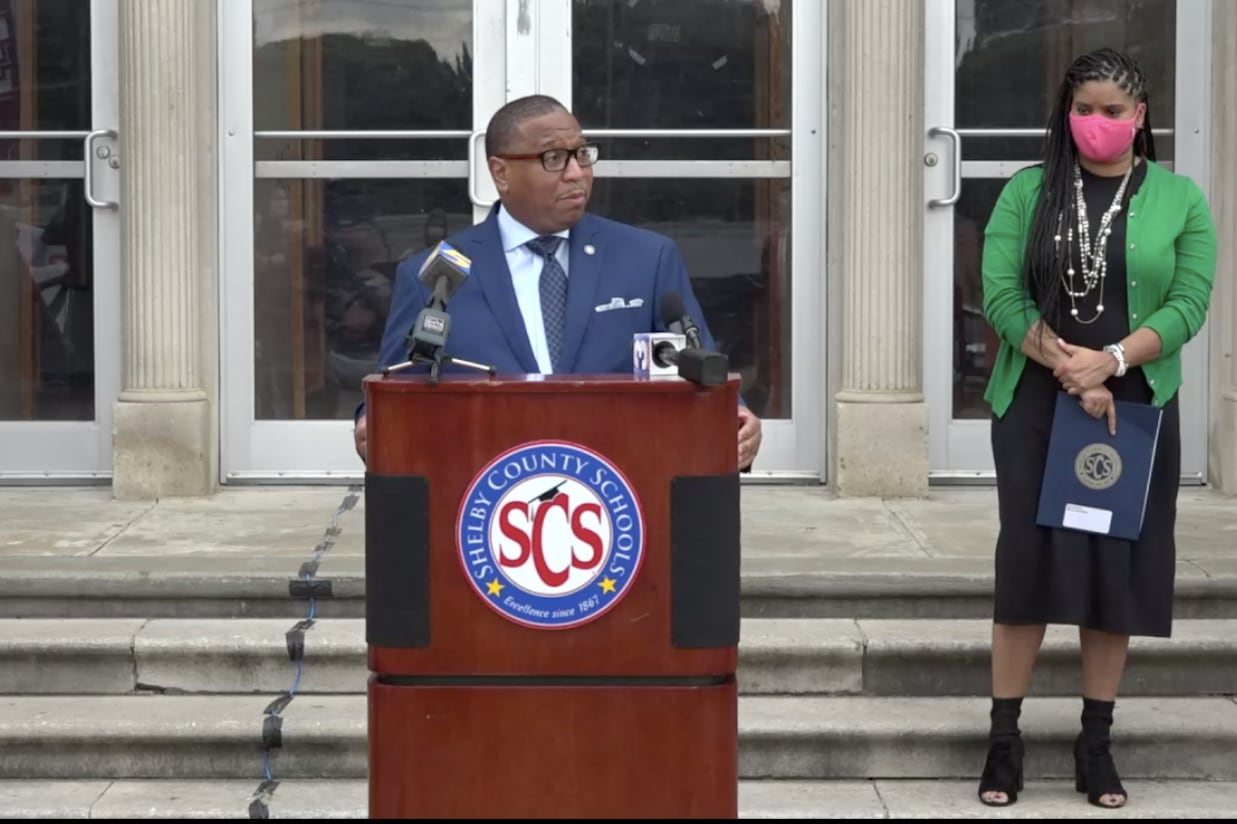The Memphis-Shelby County Schools board voted Wednesday to place Superintendent Joris Ray on paid administrative leave pending the outcome of an outside investigation into whether he violated district policies on relationships with co-workers and abused his power.
The move follows allegations, first reported by the Daily Memphian, that Ray had adulterous relationships, possibly with current and former district employees. The motion passed on a 7-2 vote during a special meeting, with board members Stephanie Love and Joyce Dorse-Coleman voting against.
With the same vote, the board appointed Edward L. Stanton III, a former U.S. attorney now with the Butler Snow Law Firm, to lead the investigation, and chose Herman Morris Jr. of the Morris Law Firm to advise the board before, during, and after the inquiry.
The board announced the investigation July 7.
John Barker, deputy superintendent for strategic operations and finance, and Angela Whitelaw, deputy superintendent of schools and academic support, will fill in for Ray during the investigation.
Addressing board members after the vote, Ray said he was disappointed by their decision to place him on leave, but that he respects their oversight and that they will have his “full cooperation.” In a statement last week, Ray said he was confident he did not violate any MSCS policies.

At a press conference after the meeting, Board Chair Michelle McKissack said putting Ray on leave would protect the integrity of the investigation, allow witnesses within the district to come forward with information without a fear of retaliation, and “avoid any hint of impropriety” by the board. She emphasized that putting Ray on leave does not suggest the outcome of the investigation.
McKissack could not yet say how much the investigation will cost the district. As for the timeline, she said only that it would be conducted as quickly as possible, noting that school starts in less than a month.
“We want to be focused on the families,” McKissack said outside the district’s administrative offices. “We do not want any distractions.”
The investigation, which officially began after Wednesday’s board meeting, comes at a time of transition on the school board.
Four seats on the MSCS board will be up for grabs in elections on Aug. 4, including those of incumbents McKissack, Dorse-Coleman, and Charles Everett, who was appointed to represent District 6 earlier this year after Shante Avant resigned. In addition, board members Billy Orgel and Miska Clay-Bibbs are set to leave the board at the end of the month. Orgel did not run for reelection; Clay-Bibbs is running for a seat on the Shelby County Commission.
Ray became superintendent of MSCS in April 2019, after the school board opted to ditch a national search. Board members at the time called him an “exceedingly qualified candidate” and said they felt a national search was unnecessary as Ray, who had been serving as interim superintendent for months, could step in immediately.
But some Memphians disagreed and protested the appointment. Others expressed concern about allegations of sexual harassment lodged against Ray months earlier. A district investigation concluded the complaints were “without merit.”
Throughout Ray’s turbulent tenure — the pandemic, his clash with Gov. Bill Lee and GOP leaders over his decision to keep students learning remotely for much of the 2020-21 school year, and his later efforts to lead COVID recovery — he has enjoyed steadfast support from the school board. Ray secured an early contract extension through 2025, and he garnered high marks on all his evaluations.
On his most recent review in August 2021, Ray got an overall score of 4.2 out of 5 — or “completely meets expectations.” His highest marks were in the management of business and finance and community relations categories. His lowest were for governance and relations with the board and staff.
The board decision Wednesday followed a public comment period during which more than a dozen people, mostly principals and other district employees, vouched for Ray’s leadership, some of them dismissing the allegations against him as a distraction.
Steevon Hunter, principal of Kirby High School and the father of two MSCS students, said “people from all over” look to the district as an example because of Ray’s “inspiration and innovation.”
Renee Smith of Memphis Lift, a parent advocacy group that protested Ray’s appointment in 2019, was one of several community members to call on the board to take swift action against Ray.
“Our superintendent is the distraction,” Smith said during public comment. “And we all know it’s time for him to go.”
Samantha West is a reporter for Chalkbeat Tennessee, where she covers K-12 education in Memphis. Connect with Samantha at swest@chalkbeat.org.





